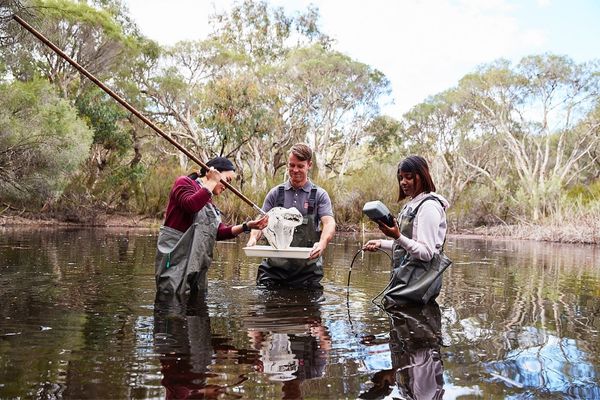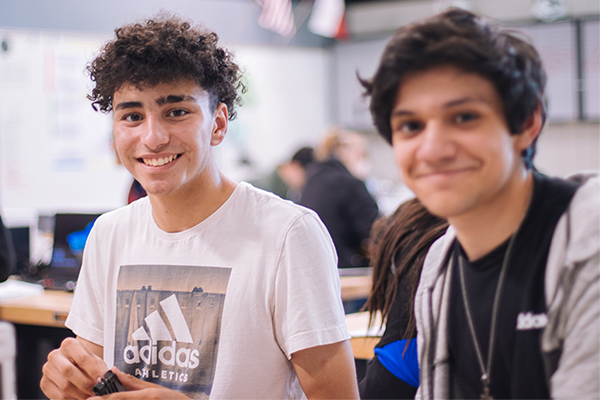Is your teen interested in food, science, and helping others? There’s a career in that. Find out how they can prepare with a degree from Murdoch University.
Is your teen caring but also interested in science? Are they passionate about the role of food in health and wellbeing, human performance, and illness prevention? A Bachelor of Food Science and Nutrition can help them build skills and knowledge to prepare them for a career in fields related to the promotion of health through better food.
Why study food science and nutrition at Murdoch?
Murdoch’s program is ideal for those who want to combine an interest in food and the science behind it with the opportunity to make a real difference in the lives of others. Health is central to wellbeing, and what we eat can be just as important to our health as factors like exercise and genetics. Here's what your teen will learn:
- Murdoch has a five-star rating for skills development in Health Services & Support. (Good Universities Guide, 2023)
This rating is based on surveys of students. Their consensus? In fields related to health, Murdoch gave them excellent preparation in a range of skills so they could feel confident entering the workplace. - Your teen will study in the heart of the Murdoch Health Precinct.
This includes public and private hospitals and a leading medical research institute, the Australian National Phenome Centre. Your student will get to see research that applies what they learn in the classroom to real-world challenges. - They’ll get their hands dirty.
They can take advantage of our living labs to grow their food production research knowledge, including at our Whitby Falls farm on the outskirts of Perth.
What they’ll learn in food science and nutrition
This course will give your teen a solid grounding in human biology and physiology as well as a thorough understanding of food from its chemistry through to its production and preparation. They will build skills in applied areas including human nutrition bioscience, food science and food biotechnology, nutrition marketing, sports nutrition, food production, agri-nutrition, and nutrigenomics research.
Their studies will include topics like:
- the role of food and nutrition in human health and illness prevention,
- food composition knowledge and cooking/culinary skills,
- novel food product design and how to develop your own food products from scratch,
- the role of food and nutrition in sport performance and cognitive performance, and
- an understanding of food and its impacts on the human microbiome.
At Murdoch University, students are given the opportunity to put the things they are learning in their food science degree coursework into practice. This hands-on approach is one of the reasons Tahlia, a student working on her Bachelor of Food Science and Nutrition, decided to study at Murdoch.
“I chose Murdoch because the course units and outcomes of nutrition seemed the most interesting and hands-on compared to other universities. When reading the course structure, I got very excited about my journey.”
She had the opportunity to develop a novel food product and even present her work to a global leader in packaged foods.
Careers in food science and nutrition
When your teen graduates from this course they are likely to find work in a health field, in the food sector, or in a human nutrition science field. Employers may include metropolitan or regional community health centres, government organisations in food policy, non-government health organisations, food industries, food manufacturers, food marketing, sports clubs, and hospital food service facilities.
Careers could include:
- Nutritionist or Public Health Nutritionist,
- Food Scientist or Technologist,
- Product Manager,
- Food Safety Officer,
- Food Marketing and Food Media, or
- Manager in educational health and wellbeing and community programs.
Study Food Science and Nutrition at Murdoch
If your teen is ready to gain the knowledge, experience, and skills they need to contribute to better health outcomes for individuals and communities through an improved food supply, why not help them take the next step?





































